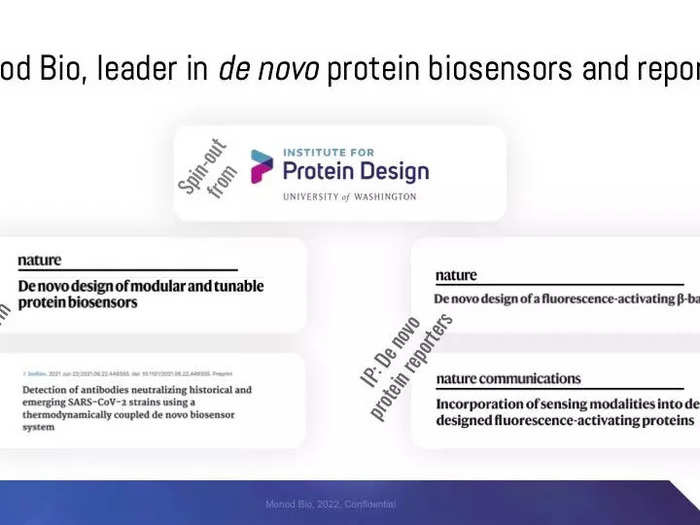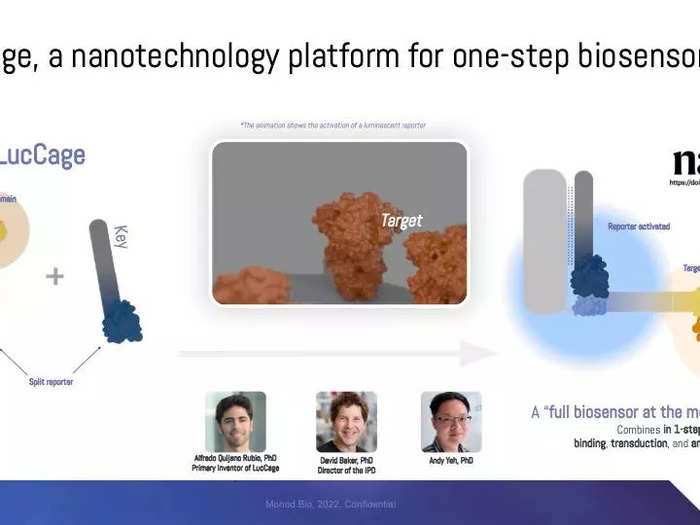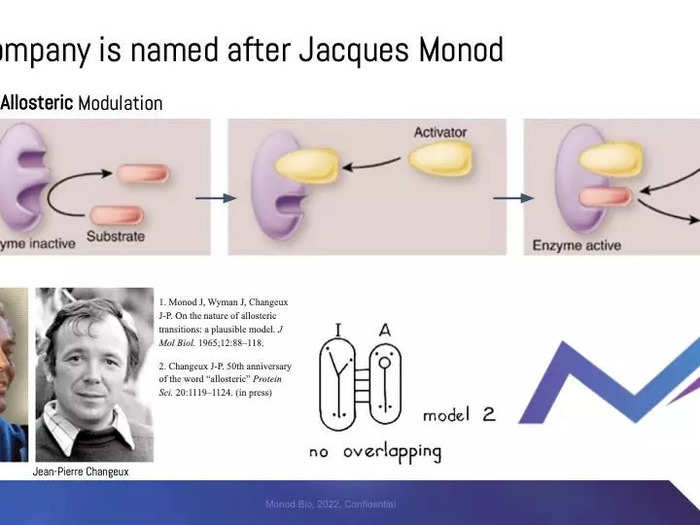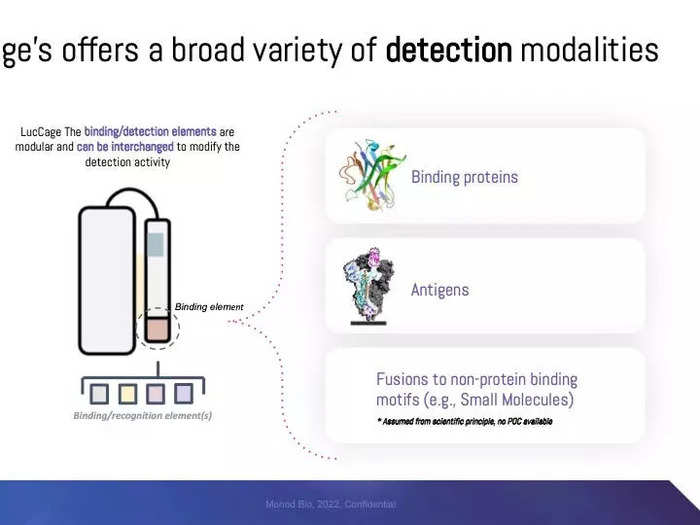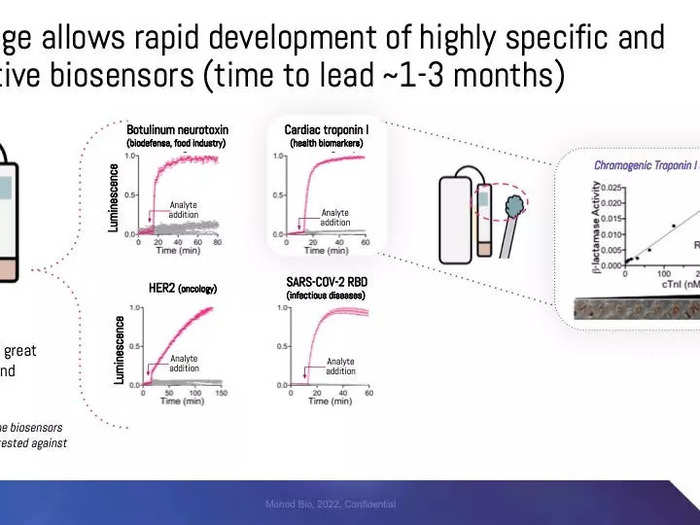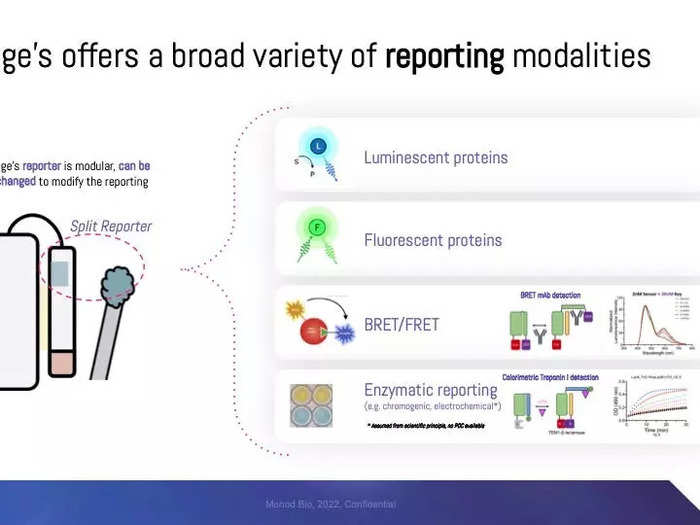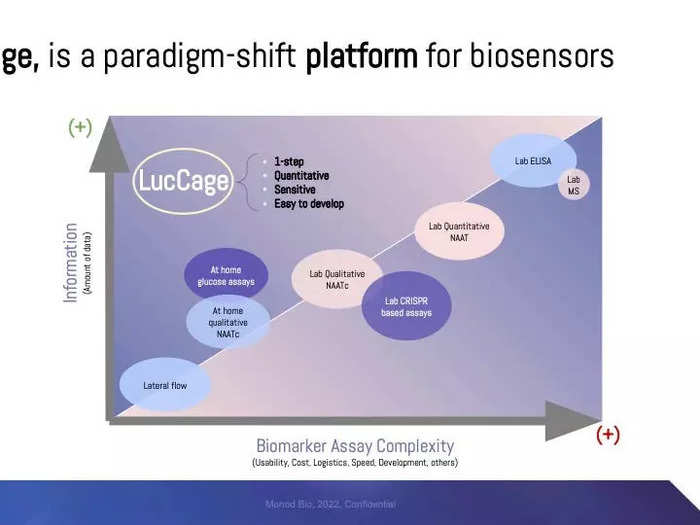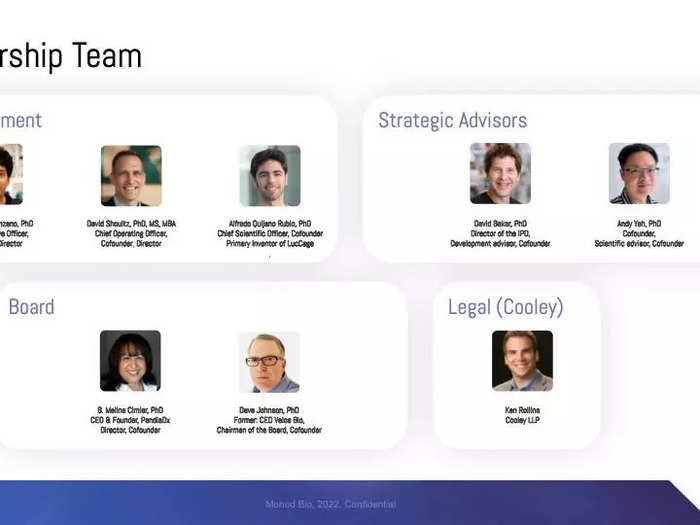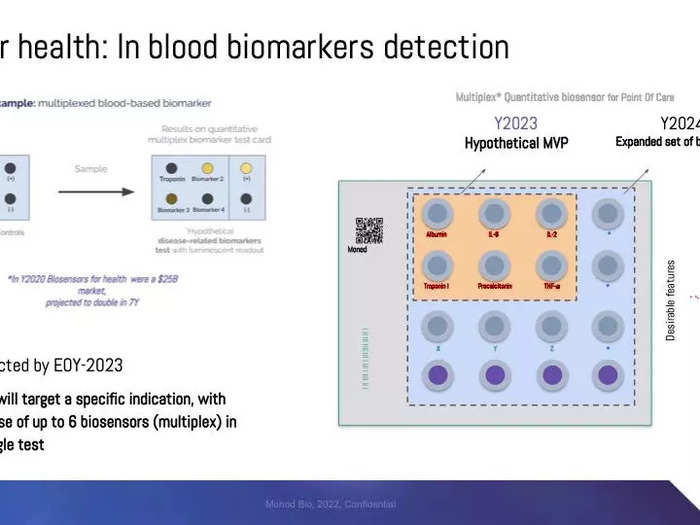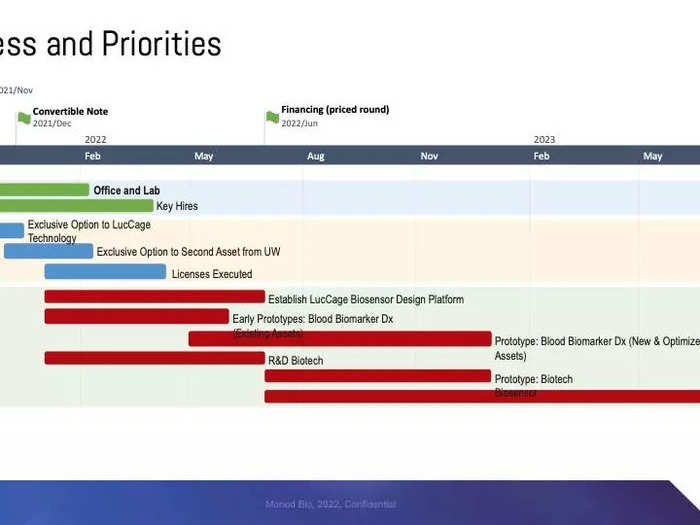See the pitch deck a biotech startup used to raise $25 million to develop light-up biosensors that can quickly diagnose diseases
Sarah Braner
- Monod Bio just raised $25 million in seed funding from investors like Matrix Capital.
- The company creates biosensors to diagnose diseases more efficiently than traditional lab tests.
Monod Bio, a biotechnology company focused on creating biosensors that can quickly and accurately diagnose diseases, has announced it raised $25 million in seed capital on August 15. The Seattle company is a spinout from the Institute for Protein Design at the University of Washington led by the protein expert David Baker, which has spun out seven other biotech startups.
Monod, which was founded in 2021, is creating biosensors that emit light when they detect biomarkers such as proteins or antibodies that indicate a disease is present. Like a glucometer that can test the sugar levels of a diabetic, Monod's founders want their device to quickly measure the presence of disease in a single step — cutting out the need for lab tests with long wait times.
"There is no other technology that will allow you to do this as our platform will do in terms of simplicity and cost," Monod's CEO and president, Daniel-Adriano Silva, told Insider.
Silva is a biologist and entrepreneur focused on protein design. Previously, he was a cofounder and the vice president of research at Neoleukin, another spinout from the Institute for Protein Design. Monod's chief operating officer, David Shoultz, was an executive director at Neoleukin. The company was cofounded by Silva, Shoultz, Baker, and Alfredo Quijano Rubio, Monod's chief scientific officer.
The lead investor in the seed round was Matrix Capital. Global Health Investment Corp., Cercano Management, the Washington Research Foundation, Boom Capital Ventures, Sahsen Ventures, and Pack Ventures also participated in the round.
Monod plans to use the funding to continue research and development on its products and expand the company.
"We are building our team, technology, and corporate value," Silva said.
Here is the 12-slide pitch deck the biosensor startup Monod Bio used to raise $25 million in seed funding:Popular Right Now
Popular Keywords
Advertisement


